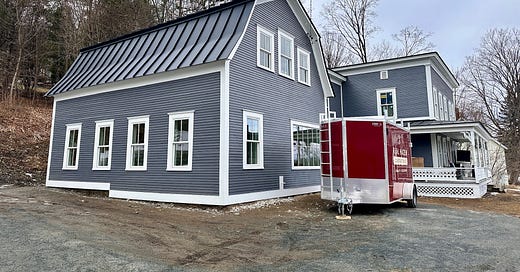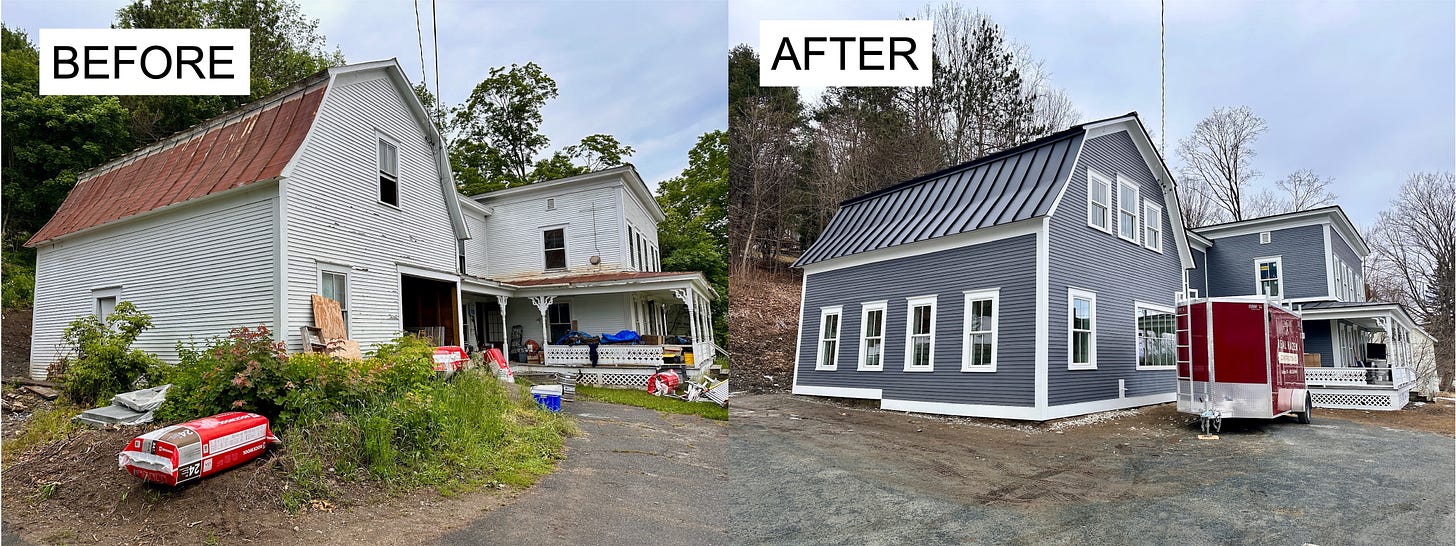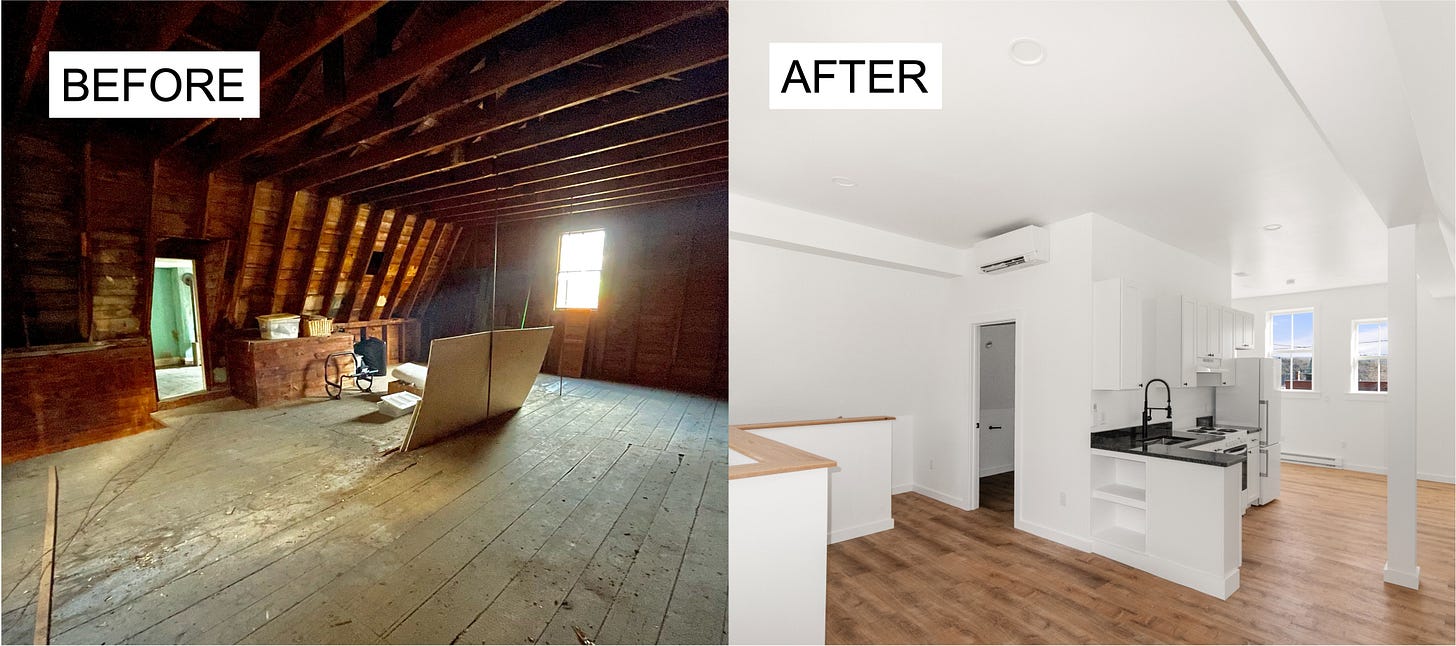The Unspoken Cost Of Building Affordable Housing
Navigating a whopping $520,000 tax bill as a result of building 6 affordable housing units.
Hey — Jonah here. This is Brick + Mortar where I talk about the acquisition, financing, design, construction, and operations of small-scale real estate development projects.
Government: “Here’s $1,100,000. Go build 6 affordable housing units.”
Me: “Great! I’ll cap rents at 60% AMI in perpetuity, slap on a deed restriction, and artificially reduce the property’s value to show my commitment.”
Government: “Bon chance!”
[1 year later…]
Government: “Hey — nice job. You owe us half that money back. Here’s your income tax bill.”
Me: “Wait, I spent those funds entirely on construction costs. There’s no money left.”
Government: “Tough shit. You owe us $520,000. Pay up.”
Yup.
Here’s the story.
Last year, we secured $1.1 million in state and federal grant funding for a 6-unit affordable housing project in Bradford, VT. As far as I can tell, we were one of two or three for-profit developers that received these funds.
The project is a poster child for the type of development the state wants to see—taking a beat-up, old, vacant house in a village center and transforming into dense, affordable housing with a charming historic design. It was even featured in the state’s dedicated toolkit for housing development.
This month, we finished the project and delivered each unit for $222k—well below the $400k+ industry norm. A major win!
Government: “Hold my beer.”
I celebrated too early.
Now, I’m staring down a $520,000 tax bill because, for for-profit developers, grant funds are considered taxable income, even if every dollar was spent on construction.
I guess they think that $1.1m went right into my pocket?
It’s insane to think that the state and feds grant you funds for capital improvements, then immediately demand nearly half of it back in taxes.
I’m not even sure how they expect me to pay that.
Again, literally every penny has been spent on construction costs.
Keep in mind—if I listed the asset right now on the market at an 8% cap rate, it would sell for only $510,000.
(This is the nature of affordable housing valuation. Because of rent restrictions and more stringent construction standards, affordable housing is worth far less than it costs to build.)
So, let’s get this straight—the amount that I owe in taxes is more than the property is worth. I can’t even pay off this tax bill if I sold the asset. Forget the bank debt or the equity I invested.
If the tax man has his way, then I will have invested two years of effort into a project only to walk away with no asset and a couple hundred thousand dollars in debt.
That hardly seems right, no?
Where’s the incentive in that?
It’s frustrating, but I see this as a challenge we can tackle. If we’re serious about promoting affordable housing, we need a smarter approach—whether that’s taxing the gain at sale or recapturing the funds when the property changes hands. I’ve spent months talking to experts, and while this situation is unique, I’m confident there’s a path forward.
This project was a success in so many ways, and I’m not letting one tax bill change that. I’m hopeful we can find a solution that doesn’t undermine the progress we’ve made.
Still figuring it out, but staying optimistic. And if you’re a tax pro with insights, I’d love to hear from you!
Until next time.
— Jonah 🧱
P.S. Want to connect? Find me on LinkedIn.






This policy smells like it is more ignorant than malicious, but for those in the affordable housing industrial complex who want to end capitalism through nationalizing housing, this policy would help achieve that end. That crowd very much beleives only non-profits should build housing, and they are establishing that beachhead with affordable housing, seeking ot push all for-profits out of markets. Idiotic policies like the one you suffered are just one of many that are destroying afforadable housing markets (If you could even call what we have left "a market").
This comment goes way beyond your post and fine work, but I do wonder if collectively we'd do better by reducing spending on these subsidy programs (>200K/unit) and simply providing wage supports where the gov't pays lower wage workers and extra ~$5/hour and perhaps more for those with dependents. I've been involved in grants from the feds that go through the state. The administrative costs between the grantors and grantees is huge, and the $ often comes very slowly. Maybe if people just had more income we could shrink programs that cost a lot to adminsiter (grants). That could have political traction across the political spectrum as it incentivizes work while also raising wages and buying power.